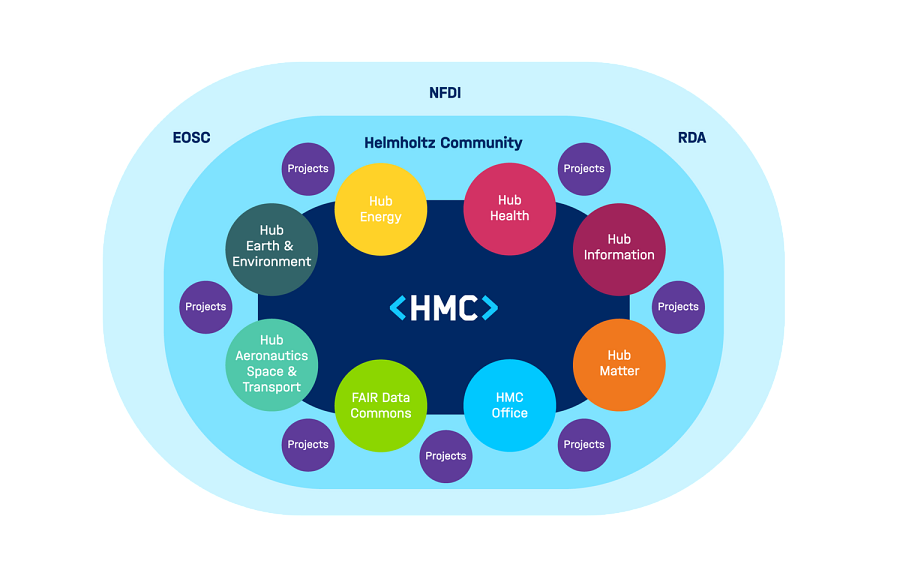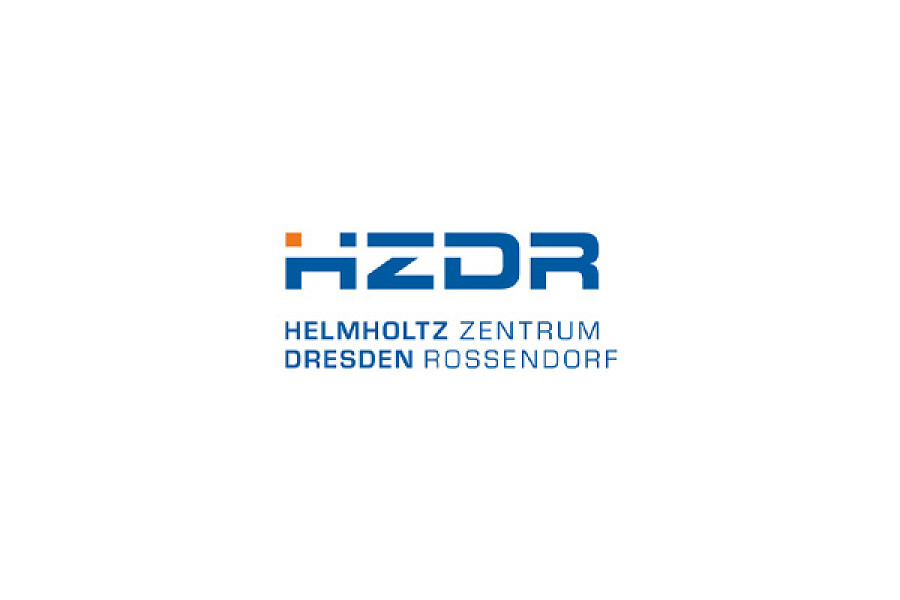
The Helmholtz Metadata Collaboration’s goal is to develop and establish novel methods and tools documenting data by means of enriched metadata. The organizational structure of the HMC platform is intended to enable the integration of metadata competence from the entire community in an optimal way. In addition to the coordination and central representation, the HMC Office is responsible for the implementation of the overarching tasks. By setting up the domain specific Metadata Hubs it can be ensured that the expertise of the research areas is optimally integrated during the implementation of the HMC platform.
The Metadata Hubs thus form the link between all centers and the higher-level activities of the HMC platform that are aimed at the entire Helmholtz Association. Within the Helmholtz Association, HMC is part of the Helmholtz Incubator Framework for Information and Data Science.
The four areas of activity are in particular:
1. Domain specific hubs for each research field
HMC is establishing metadata hubs within each of Helmholtz’ research areas and in close connection to existing structures. These hubs support researchers in the use and generation of metadata through particular services, in particular.
2. HMC service office
The HMC provides an office that is the central point of contact, coordinates activities and the flow of information, and is responsible for personnel and resource management and operations. Central communication with internal and external partners as well as transparent reporting to the Helmholtz incubator enable efficient and predictable work. The HMC has thus established itself as a network, communication and service center and contact for Helmholtz in terms of meta and research data management.
3. HMC enable FAIR
The technical implementation of the FAIR principles forms a necessary basis for the HMC platform. It needs a portfolio of easy-to-use tools, services, interfaces and IT infrastructure components for research data and its metadata management that work together seamlessly and facilitate the establishment of FAIR processes and thus information infrastructures.
Many specifications and recommendations for services already exist as recommendations of the Research Data Alliance, ISO, OAI, W3C, IETF and as ICT Technical Specifications of the European Commission (European Commission 2017). There are also some implementations for services and tools from large research data infrastructure projects, e.g. B. EOSC, ARDC, which can be reused.
4. HMC community projects
In addition to the static components implemented by the Metadata Hubs and the HMC Office, HMC has dynamic elements in the form of INF-funded projects (these account for 25% of the total funding of HMC and require 50% with 50% funding from the INF Self-financing from the participating centers). These take over the development of specific tools and solutions for tasks that result in the operational operation of HMC and dynamically supplement and adapt its offer. The projects are regularly advertised by the HMC Office and their implementation is monitored and controlled. This makes HMC a growing platform that can adapt to developments in research areas and the community as a whole and respond appropriately.
HMC structures are located at ten Helmholtz Centres in Germany:
The overall coordination by the HMC Office is located at GEOMAR Helmholtz Centre for Ocean Research in Kiel.
The Hub Aeronautics, Space, and Transport is located at German Aerospace Center (DLR) in Cologne.
The Hub Earth and Environment is also located at GEOMAR in Kiel, with satellite centers at the Alfred Wegener institute – Helmholtz Centre for Polar and Marine Research (AWI) in Bremerhaven, the Helmholtz Centre Potsdam – GFZ German Research Centre for Geosciences (GFZ) in Potsdam and the Helmholtz Center for Environmental Research (UFZ) in Leipzig.
The Hub Energy is located at the Karlsruhe Institute of Technology (KIT) in Karlsruhe with a satellite center at the Helmholtz-Zentrum Dresden-Rossendorf (HZDR) in Dresden as well as at the DLR in Cologne.
The Hub Health is located at the Deutsches
Krebsforschungszentrum (DKFZ) in Heidelberg.The Hub Information is located at the Forschungszentrum Jülich (FZJ) in Jülich.
The Hub Matter is located at the Helmholtz-Zentrum Berlin (HZB) in Berlin.
The working package "FAIR Data commons" is located at the KIT in Karlsruhe and FZJ in Jülich.










